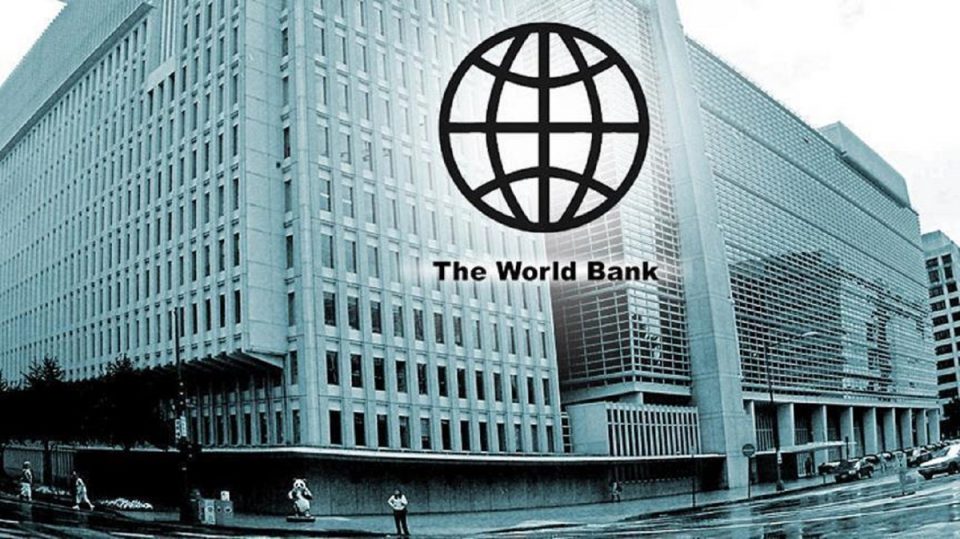Photo caption: World Bank
Heightened trade tensions and policy uncertainty are expected to drive global growth down this year to its slowest pace since 2008 outside of outright global recessions, the World Bank’s latest Global Economic Prospects report showed on Tuesday.
The turmoil has resulted in growth forecasts being cut in nearly 70 per cent of all economies across all regions and income groups.
Global growth is projected to slow to 2.3 percent in 2025, nearly half a percentage point lower than the rate that had been expected at the start of the year.
A global recession is not expected. Nevertheless, if forecasts for the next two years materialise, average global growth in the first seven years of the 2020s will be the slowest of any decade since the 1960s.
“Outside of Asia, the developing world is becoming a development-free zone,” said the World Bank Group’s Chief Economist and Senior Vice President for Development Economics, Indermit Gill.
He continued, “It has been advertising itself for more than a decade. Growth in developing economies has ratcheted down for three decades from six percent annually in the 2000s to five per cent in the 2010s to less than four per cent in the 2020s.
That tracks the trajectory of growth in global trade, which has fallen from an average of five per cent in the 2000s to about 4.5 per cent in the 2010s to less than three per cent in the 2020s. Investment growth has also slowed, but debt has climbed to record levels.”
Growth is expected to slow in nearly 60 per cent of all developing economies this year, averaging 3.8 percent in 2025 before edging up to an average of 3.9 per cent over 2026 and 2027.
That is more than a percentage point lower than the average of the 2010s. Low-income countries are expected to grow 5.3 per cent this year, a downgrade of 0.4 percentage points from the forecast at the start of 2025.
Tariff increases and tight labour markets are also exerting upward pressure on global inflation, which, at a projected average of 2.9 per cent in 2025, remains above pre-pandemic levels.
Slowing growth will impede developing economies in their efforts to spur job creation, reduce extreme poverty, and close per capita income gaps with advanced economies. Per capita income growth in developing economies is projected to be 2.9 per cent in 2025—1.1 percentage points below the average between 2000 and 2019.
Assuming developing economies other than China are able to sustain an overall GDP growth of four per cent rate forecast for 2027 of four per cent, it would take them about two decades to return to their pre-pandemic trajectory with respect to economic output.
Global growth could rebound faster than expected if major economies are able to mitigate trade tensions, which would reduce overall policy uncertainty and financial volatility.
The analysis finds that if today’s trade disputes were resolved with agreements that halve tariffs relative to their levels in late May, global growth would be 0.2 percentage points stronger on average over the course of 2025 and 2026.
“Emerging-market and developing economies reaped the rewards of trade integration but now find themselves on the frontlines of a global trade conflict,” said the World Bank’s Deputy Chief Economist and Director of the Prospects Group, Ayhan Kose.
He added, “The smartest way to respond is to redouble efforts on integration with new partners, advance pro-growth reforms, and shore up fiscal resilience to weather the storm.
“With trade barriers rising and uncertainty mounting, renewed global dialogue and cooperation can chart a more stable and prosperous path forward.”
The report argues that in the face of rising trade barriers, developing economies should seek to liberalise more broadly by pursuing strategic trade and investment partnerships with other economies and diversifying trade, including through regional agreements.
Given limited government resources and rising development needs, policymakers should focus on mobilising domestic revenues, prioritising fiscal spending for the most vulnerable households, and strengthening fiscal frameworks.
Finally, to accelerate economic growth, countries will need to improve business climates and promote productive employment by equipping workers with the necessary skills and creating the conditions for labour markets to efficiently match workers and firms.



